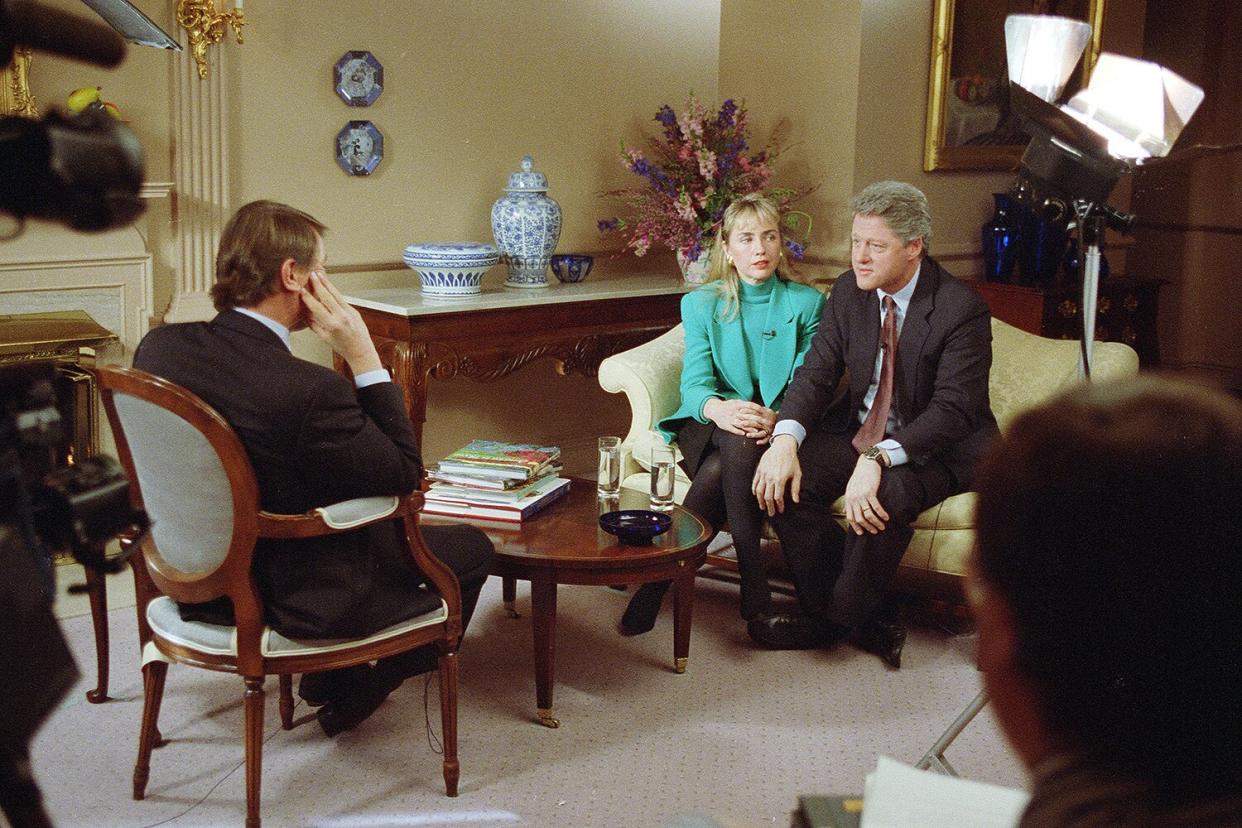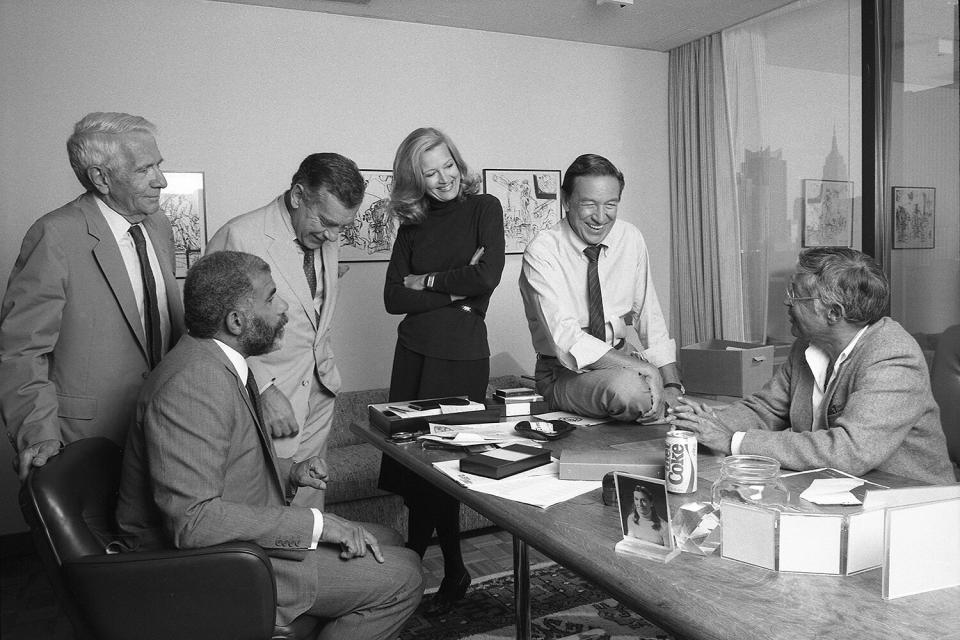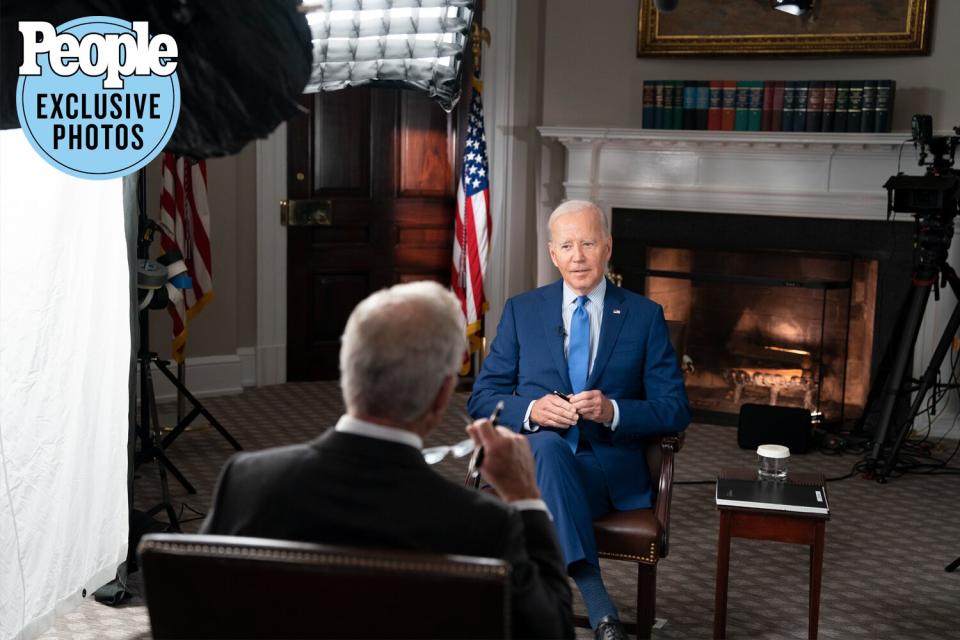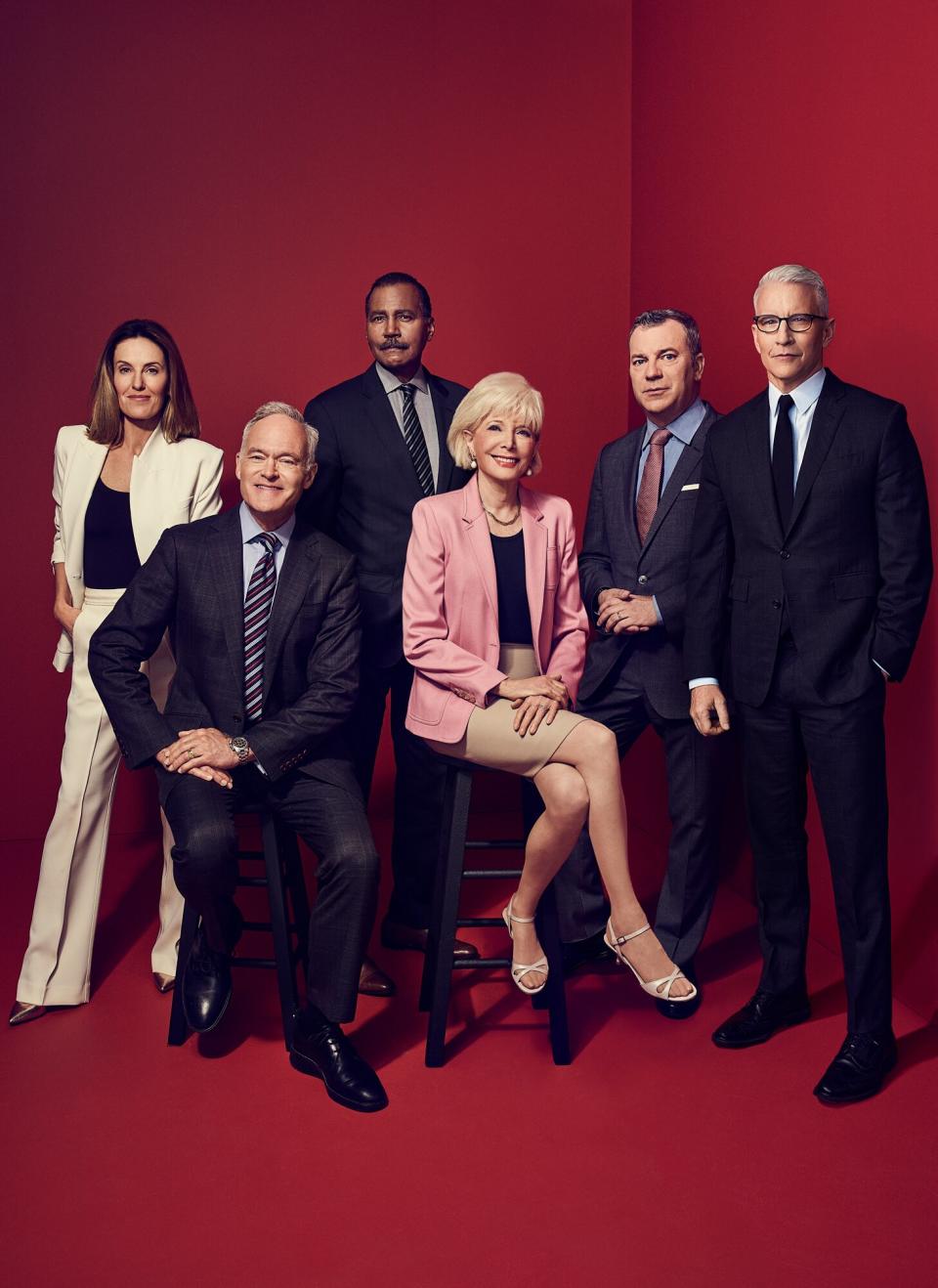'60 Minutes' Is Here to Stay

- Oops!Something went wrong.Please try again later.
CBS via Getty The famous Clinton interview of 1992
Every day, the team behind CBS News' 60 Minutes faces a make-or-break question: "How do we tell this story differently?"
It's not an unusual consideration for a news brand — in fact, it might be the most ordinary. But for the world's longest-running primetime show, which only has space for three segments a week, the need to maximize every second of airtime is a matter of carrying on the legacy built by the likes of Mike Wallace, Dan Rather and Walter Cronkite more than half a century ago.
"People have an expectation that on Sunday, 60 Minutes is going to do something distinctive," says executive producer Bill Owens, only the third person to hold the title in the show's history. "They're going to tell you something you hadn't heard before. And that's the bar we look to clear with each story."
That bar sits at an Olympic height. Segments will go through anywhere from three to 12 rounds of revisions before they're approved for air, as producers, correspondents and researchers comb through every word, every inflection, to ensure that it's fair, accurate and deserving of the 60 Minutes watermark.

Mary Kouw/CBS Bill Owens
Walking into the 60 Minutes workspace, it's hard to forget the role correspondents have played in marking history for five-plus decades.
The Midtown Manhattan office is a living museum of sorts. A mustard midcentury armchair used in the inaugural 1968 broadcast is displayed in the lobby below a collection of 60 Minutes-themed comics; photos from memorable interviews through the years line the walls, a still shot of correspondent Lesley Stahl and late Supreme Court Justice Ruth Bader Ginsburg positioned near the bathroom; and the office's isolated placement in a BMW building across the street from the other CBS newsrooms serves as a reminder that 60 Minutes is an island of prestige even within the company.
RELATED: 55 Years of '60 Minutes': Behind the Curtains as TV Newsmagazine Gears Up for Powerful New Season
Old and simple, calm yet thrilling, the office matches the tone of the broadcast. While there are contemporary touches and new technologies, little has changed over time. And as the show lengthens its unprecedented run, viewers can continue to expect a show that looks and feels the same they've always known it.
"I will not change," Owens says. "I have no interest in changing the content, nor does anybody who works here."

Brownie Harris/Corbis via Getty The '60 Minutes' news team in 1986
The Secret to 60 Minutes' Timelessness
When the tick tick tick welcomes a new Sunday night episode, anyone listening knows what's coming: They will hear an impactful interview, see a fascinating feature and get a taste of culture before the hour ends.
"They have no idea what the story's going to be," Stahl says, "but they absolutely know that the quality's going to be the same."
"The idea of market research in journalism to me is silly," Owens says, explaining that every story pursued by a correspondent is something they independently deem timely and important, whether audiences are naturally drawn to the issue or not. "We're supposed to cover the news, and cover it well. When you do that with repetition, you build a reputation."
Owens' defiant commitment to putting gut feelings over viewer-driven data would be detrimental to other newscasts, which have struggled to maintain viewership in an ever-changing media landscape. But 60 Minutes isn't like other newscasts; its audience remains enormous.

Eric Kerchner/60 Minutes President Biden on '60 Minutes'
After years of murmurs that broadcast news is dying, 60 Minutes continues to pull in 9 million viewers a week on average. When there's a particularly important interview, the needle moves closer to 13 million.
Many believe that the industry is propped up by an aging generation and are bracing for TV news to vanish altogether. Owens can't speak for other shows, but based on his own experience, that fear simply doesn't apply to 60 Minutes.
"When I started at CBS News in 1988, the average age of a 60 Minutes viewer was about my age now," the 55-year-old EP says. "The mean age of a 60 Minutes viewer today is almost exactly the same." His theory is that people "grow into" the show, as circumstances in their life lead them to crave calm storytelling — and be at home more often on Sunday evenings.

CBS Watch Magazine The cast of '60 Minutes' as seen in the Sept. 20 issue of 'Watch Magazine'
Never miss a story — sign up for PEOPLE's free daily newsletter to stay up-to-date on the best of what PEOPLE has to offer.
As for why viewers turn to 60 instead of another evening news program, multiple members of the team note that their core base is "sophisticated"; they don't want the sensationalism, they don't want the bells and whistles, they don't want flashy graphics, and they certainly don't want modern trends to change the show's nostalgic feeling.
Plus, as correspondent Bill Whitaker says, "the visuals are second to none." With the help of top-talent camera crews based all over the world, each segment is able to bring audiences along for the journey, no matter the destination.
As a new season of the show quickly approaches, Whitaker hopes that Americans can sit back and enjoy another year of engaging content that contextualizes the world around them, advising: "Just take a minute and listen to this. Just take a minute and consider this."
60 Minutes season 55 premieres Sunday, Sept. 18, at 7:30 p.m. ET/7 p.m. PT on CBS.

